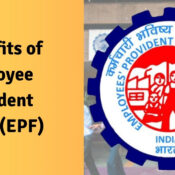Risks and Considerations for GIFT City FDs for NRIs
While Fixed Deposits (FDs) in Gujarat International Finance Tec-City (GIFT City) present an attractive investment opportunity for Non-Resident Indians (NRIs), it’s imperative to consider the potential risks and factors involved. This blog explores the various considerations that NRIs should be aware of before investing in GIFT City FDs.
Understanding the Nature of Fixed Deposits
Fixed Deposits are traditionally considered safe investments with predictable returns. However, they are not entirely free from risks. This is especially true for FDs in a specialised financial zone like GIFT City, where the rules of engagement might differ from conventional banking systems in India.
Exchange Rate Risk
One of the primary risks associated with GIFT City FDs, especially those in foreign currencies, is exchange rate volatility. Since NRIs can invest in FDs in various currencies in GIFT City, any fluctuation in exchange rates can impact the investment’s value and returns. For example, if an NRI invests in an FD in US dollars and the value of the dollar falls against the Indian rupee during the investment period, the investor may face a loss when converting the returns to their local currency.
Interest Rate Risk
Interest rates are subject to change based on economic policies and market conditions. If the prevailing interest rates rise after an NRI has locked in their FD at a lower rate, they miss out on the opportunity to earn higher interest. Conversely, if interest rates fall, the FD remains a comparatively better investment.
Regulatory Changes
Being a unique financial and business hub, GIFT City operates under specific regulations which can change. Any changes in policies or regulations, both in India and in the investor’s country of residence, can impact the benefits or the viability of the investment in GIFT City FDs. NRIs should be aware of the regulatory environment and its stability before investing.
Taxation Considerations
While GIFT City may offer certain tax benefits, the taxation of returns from FDs can be a complex matter, especially for NRIs who might be liable to pay taxes in their country of residence as well. Understanding the tax implications in India and the country of residence is crucial. Tax laws like the Foreign Account Tax Compliance Act (FATCA) in the United States impose specific reporting requirements for overseas financial assets, which include FDs in GIFT City.
Liquidity Constraints
FDs, by nature, are not the most liquid investments. They have a fixed tenure, and premature withdrawal often leads to penalties and reduced interest earnings. NRIs need to assess their liquidity needs and ensure that they are comfortable locking in funds for the duration of the FD.
Credit Risk
While not a significant concern, there is always a credit risk associated with any banking institution. It refers to the risk of the bank defaulting on its obligations. Although Indian banks are generally considered stable, it is still a factor to consider, especially for banks operating in specialized zones like GIFT City.
Inflation Risk
Inflation can erode the real value of interest earned on FDs. If the inflation rate surpasses the interest rate on the FD, the real return on the investment could be negative. This is an essential consideration for long-term investments.
Diversification
Investing a significant portion of funds in a single investment type, like FDs, can lead to a lack of diversification. NRIs should consider balancing their investment portfolio across various assets to mitigate risks.
Investing in GIFT City FDs offers NRIs a unique opportunity to participate in India’s financial markets. However, like any investment, it comes with its set of risks and considerations. NRIs should thoroughly evaluate these factors, ideally consulting with financial advisors, to ensure that their investment aligns with their financial goals, risk appetite, and liquidity needs. A careful and informed approach will enable NRIs to make the most out of their investment in GIFT City FDs.





